Online Yin Yoga Teacher Training Certificate Course
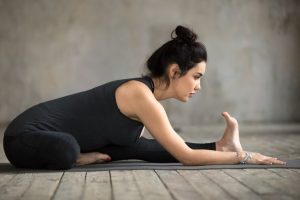
Name of the Course: Yin Yoga Teacher Training Certificate Course
Language: Our courses will be held in English Medium.
Days: Monday – Friday
Timing: 5:00PM – 6:30PM (01:30 Hours)
Mode: Online
Course Duration: Two Weeks
Total Fee for the Training(For Indian Citizens Only):INR 17,000
Total Fee for the Training(For Non-Indian Citizens Only):USD 300
Accreditation: Yoga Alliance, USA, YACEP.
About the course facilitator: S. Karuna Murthy, M.Sc., Ph.D., E-RYT 500, YACEP
What you will get?
Yoga Manual (01)
Certificate
Yoga Training
Excluded with accommodation and food
For Further Consultation: Please Contact Us (karunaayoga@gmail.com or +91 9686549129)
Apply Now
Overview of a Yin Yoga Teacher Training Course
A Yin Yoga Teacher Training Course is designed to equip yoga practitioners and teachers with the knowledge and skills to effectively teach Yin Yoga. This specialized style of yoga focuses on passive, long-held postures that target deep connective tissues, fascia, and energy meridians.
Course Structure & Curriculum
1. Foundation of Yin Yoga
History and philosophy of Yin Yoga (Taoist and Traditional Chinese Medicine influence)
Key differences between Yin and Yang styles of yoga
The role of stillness, surrender, and mindfulness in Yin practice
2. Anatomy & Physiology
Skeletal variations and how they affect asana practice
Understanding fascia, joints, and connective tissues
Functional anatomy vs. aesthetic alignment
The role of the nervous system in Yin Yoga
3. The Asanas (Postures) of Yin Yoga
Learning the essential Yin poses (e.g., Butterfly, Sphinx, Dragon)
Proper alignment, modifications, and use of props
Target areas and energetic benefits of each posture
Sequencing Yin Yoga classes effectively
4. Meridian Theory & Energy Flow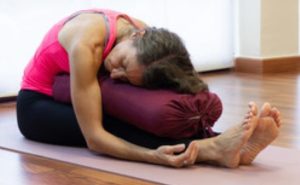
Introduction to Traditional Chinese Medicine (TCM)
The role of meridians and the five elements in Yin Yoga
How Yin Yoga influences Qi (life force energy)
Acupressure points and breathwork for deeper practice
5. Meditation & Mindfulness in Yin Yoga
Breathwork (Pranayama) for relaxation and energy balance
Techniques for guiding meditation during Yin Yoga
The importance of stillness and introspection
Developing a personal mindfulness practice
6. Teaching Methodology & Sequencing
How to create well-balanced Yin Yoga sequences
The art of holding space and cueing effectively
Adapting Yin Yoga for different students (beginners, seniors, injuries)
Ethics and responsibilities of a Yin Yoga teacher
7. The Business of Teaching Yin Yoga
How to integrate Yin Yoga into existing yoga classes
Building a career as a Yin Yoga instructor
Marketing strategies for yoga teachers
Certification & Accreditation
Yoga Alliance Certified under YACEP (Yoga Alliance Continuing Education Provider)
Online and in-person training programs are offered globally
Who Can Join?
Yoga teachers who want to expand their knowledge
Yoga practitioners looking to deepen their practice
Wellness professionals (massage therapists, energy healers, etc.)
Benefits of Yin Yoga Teacher Training
Deepens personal practice and self-awareness
Enhances knowledge of anatomy and energy meridians
Provides tools to create a calming, introspective practice
Expands career opportunities in the yoga and wellness industry
How Yin Yoga Teacher Training Benefits You as a Yoga Trainer
Becoming certified in Yin Yoga can significantly enhance your skills and expand your teaching opportunities. Here’s how a Yin Yoga Teacher Training can benefit you as a yoga trainer:
1. Expands Your Teaching Repertoire
Adding Yin Yoga to your expertise allows you to offer diverse class styles, attracting more students.
It complements Yang styles(like Vinyasa, Ashtanga, or Power Yoga), creating a balanced practice.
Yin Yoga is highly adaptable and can be integrated into Hatha, Restorative, or Therapeutic Yoga
2. Enhances Your Knowledge of Anatomy & Energy Systems
Yin Yoga focuses on functional anatomy rather than aesthetic alignment.
You learn about skeletal variations, fascia, and how different bodies respond to poses.
Understanding meridians and energy flow(from Traditional Chinese Medicine) deepens your ability to guide students in self-healing.
3. Helps You Attract a Wider Range of Students
Yin Yoga is ideal for all levels, including seniors, athletes, and those recovering from injuries.
Many people seek gentle, meditative classes to balance stress and fast-paced lifestyles.
You can cater to diverse demographics, including corporate clients, therapy seekers, and mindfulness practitioners.
4. Deepens Your Own Practice & Teaching Presence
Yin Yoga encourages self-reflection, patience, and mindfulness—qualities that enhance your personal growth as a teacher.
The practice promotes a calm and centered teaching approach, which helps in leading all types of yoga classes with greater ease.
You develop better breath control, stillness, and focus, enhancing your presence in every class.
5. Increases Career Opportunities & Income
As a certified Yin Yoga teacher, you can:
Offer specialized Yin Yoga classes & workshops.
Teach private sessions tailored for stress relief and injury recovery.
Host Yin & Meditation retreats.
Work with wellness centers, therapy clinics, and corporate programs.
Many studios and yoga teacher training programs seek specialized instructors, giving you a competitive edge.
6. Supports Mental & Emotional Well-Being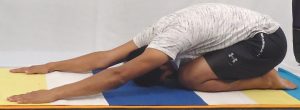
Yin Yoga integrates mindfulness, meditation, and breathwork, making it a great tool for stress management.
Teaching Yin Yoga helps students manage anxiety, burnout, and chronic tension, increasing your impact as a wellness professional.
You’ll cultivate a more grounded and peaceful teaching style, benefiting both you and your students.
7. Enhances Your Ability to Teach Therapeutic & Restorative Yoga
Many Yin Yoga principles overlap with Restorative Yoga and Yoga Therapy.
You’ll be better equipped to work with students with injuries, chronic pain, or emotional trauma.
Yin Yoga is often used in rehabilitation programs and is a powerful tool for holistic healing.
Yin Yoga Teacher Training Course (TTC) Syllabus
A Yin Yoga Teacher Training Course (TTC) is designed to provide a deep understanding of Yin Yoga, focusing on anatomy, philosophy, and teaching methodology.
1. Introduction to Yin Yoga
History & origins (Paul Grilley, Sarah Powers, Daoist influences)
Difference between Yin and Yang Yoga
The principles of Yin Yoga (Stillness, Time, Surrender)
Importance of relaxation and mindfulness in Yin practice
2. Anatomy & Physiology for Yin Yoga
Understanding skeletal variations and how they impact poses
Fascia, connective tissues, and their role in Yin Yoga
Joint health and range of motion
The role of stress and relaxation in tissue regeneration
The nervous system: Parasympathetic vs. Sympathetic activation
3. Yin Yoga Postures (Asanas)
Breakdown of primary Yin Yoga postures
Modifications & use of props for different body types
How to hold poses safely (2–10 minutes)
Functional alignment vs. aesthetic alignment
Counter poses & balancing Yin with Yang practices
4. Traditional Chinese Medicine (TCM) & Meridian Theor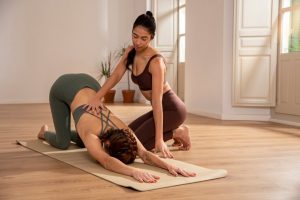
Introduction to the five elements (Wood, Fire, Earth, Metal, Water)
Understanding Qi (life force energy)and its flow in the body
Yin Yoga’s effect on meridians and organ health
Acupressure points & self-massage techniques
Seasonal Yin Yoga practices for balancing energy
5. The Role of Breath & Meditation in Yin Yoga
Pranayama techniques for Yin practice (diaphragmatic breathing, Ujjayi, Nadi Shodhana)
Introduction to mindfulness and meditation in Yin Yoga
Techniques for guiding students through a meditative Yin practice
Incorporating Yoga Nidra and deep relaxation
6. Yin Yoga Class Sequencing & Teaching Methodology
How to design effective and balanced Yin Yoga sequences
Themed classes (chakra-based, seasonal, meridian-focused, emotional healing)
How to cue Yin postures and hold space for students
Hands-on adjustments & energetic touch
Working with different student groups(beginners, athletes, seniors, prenatal)
7. The Science of Stillness: Yoga Philosophy & Mindfulness
Yin Yoga and the Yoga Sutras of Patanjali
How Yin Yoga relates to Buddhism & Daoism
The practice of non-attachment (Aparigraha) and surrender (Ishvarapranidhana)
Understanding mindfulness and present-moment awareness
The balance of effort and ease (Sthira-Sukham Asanam)
8. Therapeutic Applications of Yin Yoga
How Yin Yoga helps with stress, anxiety, and emotional balance
Yin Yoga for injury recovery and pain management
Teaching trauma-sensitive Yin Yoga
The connection between emotions and fascia release
Creating a safe and inclusive Yin Yoga space
9. The Business of Yin Yoga
How to market yourself as a Yin Yoga teacher
Creating Yin Yoga workshops, retreats, and online classes
Expanding your yoga career with continuing education
Ethics and responsibilities of a Yin Yoga instructor
Certification & Requirements
Minimum teaching practice (for 20-hour programs)
Final teaching assessment (leading a Yin Yoga class)
Written or practical exam (in some programs)
Certification accredited by Yoga Alliance (YACEP)
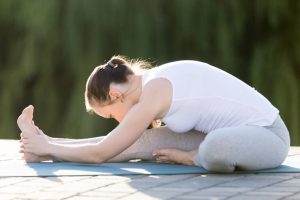
1. Who Can Join?
Yoga Practitioners (Beginners to Advanced)
No prior teaching experience is required for basic Yin Yoga TTC (50-100 hours).
A regular yoga practice (any style) is recommended.
Certified Yoga Teachers (RYT 200, 300, 500)
If you’re already a Registered Yoga Teacher (RYT), Yin Yoga TTC can count as continuing education credits (YACEP)with Yoga Alliance.
Great for teachers looking to specialize in Yin Yoga and expand class offerings.
Wellness & Holistic Practitioners
Yoga therapists, physiotherapists, massage therapists, energy healers, and meditation teachers can integrate Yin Yoga into their practice.
Fitness & Health Professionals
Personal trainers, pilates instructors, and physiotherapists who want to incorporate mobility, flexibility, and mindfulness into their work.
Anyone Interested in Deepening Their Personal Practice
If you love slow, mindful practices and want to understand anatomy, energy work, and meditation, this training is beneficial.
2. Pre-requisites for Yin Yoga TTC
No prior teaching experience required.
A basic understanding of yoga principles is helpful.
Willingness to practice stillness, patience, and mindfulness.
For Online Yin Yoga TTC:
A good internet connection and a quiet space for practice.
Self-discipline to complete coursework and practical teaching.
3. Skills & Qualities That Help You Succeed in Yin Yoga TTC
- Patience & Mindfulness – Yin Yoga is slow and meditative, requiring a calm mindset.
- Curiosity About Anatomy & Energy Work – A willingness to learn about fascia, meridians, and Traditional Chinese Medicine (TCM).
- Openness to Self-Reflection – Yin Yoga can be deeply introspective, helping to release emotional and physical tension.
- Commitment to Practice – Regular Yin Yoga practice enhances understanding and teaching confidence.
4. What You DON’T Need
- Extreme flexibility – Yin Yoga is about deep tissue release, not advanced poses.
- Prior teaching experience (for foundational courses).
- A specific body type – Yin Yoga is accessible to everyone.
Highlights of Yin Yoga Teacher Training Course (TTC)
A Yin Yoga TTC offers a deep and transformative experience, focusing on stillness, mindfulness, and energy healing. Here are the key highlights:
1. Comprehensive Yin Yoga Education
- Deep dive into Yin Yoga philosophy (Taoism, Traditional Chinese Medicine, & Meridians)
- Understanding the differences between Yin & Yang Yoga
- Learning functional anatomy and how skeletal variations impact practice
- Exploring fascia, connective tissues, and joint mobility
2. Yin Yoga Asana Practice & Teaching
- Learning essential Yin Yoga poses & their energetic effects
- Using props & modifications for different body types
- Understanding long-held postures (2-10 mins) for deep tissue release
- Creating balanced & themed Yin Yoga sequences
3. Traditional Chinese Medicine (TCM) & Energy Work
- Understanding Qi (life force energy) and meridians
- Yin Yoga’s impact on organs, emotions, and overall well-being
- Acupressure techniques to enhance Yin practice
- Seasonal Yin Yoga for balancing elements (Wood, Fire, Earth, Metal, Water)
4. Breathwork, Meditation & Mindfulness
- Incorporating Pranayama (breath control) for relaxation
- Learning guided meditation techniques for a deeper Yin experience
- Understanding the role of stillness & mindfulness in Yin Yoga
- Using Yoga Nidra & visualization for emotional release
5. Teaching Methodology & Hands-on Practice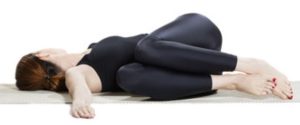
- How to guide a Yin Yoga class with effective cueing
- The art of holding space and creating a meditative environment
- Teaching Yin Yoga for different students (beginners, elderly, injury recovery, etc.)
- Practical teaching experience with feedback from mentors
6. Therapeutic & Emotional Benefits of Yin Yoga
- Yin Yoga for stress relief, anxiety, and emotional healing
- Understanding the mind-body connection in trauma release
- Working with students with injuries, chronic pain, or burnout
- Using Yin Yoga as a holistic healing tool
7. Certification & Career Opportunities
- Yoga Alliance Continuing Education (YACEP) Certification for RYTs
- Opportunities to teach Yin Yoga classes, workshops, and retreats
- Expanding your career into Yoga Therapy, Mindfulness Coaching, & Energy Healing
Why Take Yin Yoga TTC?
- Deepens your personal practice with mindfulness & stillness
- Expands your yoga teaching skills and career opportunities
- Teaches you the art of balance between movement and stillness
- Helps you support students in healing and self-discovery
Recommended Books
“The Complete Guide to Yin Yoga: The Philosophy and Practice of Yin Yoga”– Bernie Clark
“Yin Yoga: Stretch the Mindful Way”– Kassandra Reinhardt
“YinSights: A Journey into the Philosophy & Practice of Yin Yoga”– Bernie Clark
4. Anatomy and Fascia Studies
“The Key Muscles of Yoga”– Ray Long
“The Key Poses of Yoga”– Ray Long
“Anatomy Trains: Myofascial Meridians for Manual and Movement Therapists”– Thomas W. Myers
“The Web That Has No Weaver: Understanding Chinese Medicine”– Ted J. Kaptchuk
“Energy Medicine: The Scientific Basis”– James L. Oschman
“The Heart of Buddhist Meditation”– Nyanaponika Thera
“The Miracle of Mindfulness”– Thich Nhat Hanh
(FAQ) Frequently Asked Questions
1. What is Yin Yoga Teacher Training (TTC)?
A Yin Yoga TTC is a structured training program designed to teach participants the principles, philosophy, and techniques of Yin Yoga. This includes learning about anatomy, meridians, energy systems, and meditation within the context of the slow, mindful practice of Yin Yoga. The training typically includes both theoretical and practical components, preparing you to teach Yin Yoga classes or deepen your own practice.
2. Who can attend a Yin Yoga TTC?
Yin Yoga TTC is open to:
Yoga practitioners(of all levels) who want to deepen their practice.
Yoga teachers(RYT 200, 300, 500) who want to expand their skill set.
Wellness professionals(like therapists or fitness trainers) who are interested in incorporating Yin Yoga into their practice.
Anyone interested in Yin Yoga as a personal development tool, including meditation and mindfulness practices.
3. Do I need to be a yoga teacher to join a Yin Yoga TTC?
No, you do not need to be a certified yoga teacher to join a 50-hour or 100-hour Yin Yoga TTC. However, for a 200-hour Yin Yoga TTC, some programs may require a basic understanding of yoga principles or a 200-hour Yoga Teacher Training (YTT) certification. If you’re a yoga teacher, this course can also count as continuing education (YACEP) with Yoga Alliance.
4. What will I learn during a Yin Yoga TTC?
In a typical Yin Yoga TTC, you will learn:
Yin Yoga Postures(Asanas) and their therapeutic effects
Anatomy and Fascia: how the body’s connective tissues and joints respond to the practice
Traditional Chinese Medicine (TCM)concepts: Meridians, Qi, and the five elements (Wood, Fire, Earth, Metal, Water)
Breathwork and Meditation: Pranayama techniques and mindfulness practices
Sequencing Yin Yoga Classes: How to structure Yin Yoga sessions for different needs
The role of Yin Yoga in healing: emotional and physical stress, injury recovery, and relaxation
5. What is the difference between Yin Yoga and other styles?
Yin Yoga focuses on long-held, passive postures that target the deep connective tissues (fascia, ligaments, joints), rather than the muscles.
In Yang-style yoga(like Vinyasa or Ashtanga), the focus is on dynamic movement and building strength and flexibility through active muscle engagement.
Yin Yoga is slower, often held for 2-10 minutes per posture, and works to improve flexibility, joint health, and emotional well-being by stimulating energy flow in the body.
6. What are the requirements to enroll in a Yin Yoga TTC?
50-hour/100-hour TTC: No prior teaching experience required. Regular yoga practice is helpful, but not mandatory.
200-hour TTC: A 200-hour Yoga Teacher Training(RYT certification) may be recommended but not always required. Some programs also accept students with a strong yoga practice.
Commitment to practice stillness, mindfulness, and patience.
7. Is Yin Yoga Teacher Training physically demanding?
Unlike more physically demanding styles of yoga, Yin Yoga is about stillness and deep relaxation, so the physical aspect is less intense. However, you will be asked to hold poses for longer durations (2-10 minutes), which can require mental and physical endurance. It’s not about flexibility or strength but about cultivating patience, presence, and relaxation in each pose.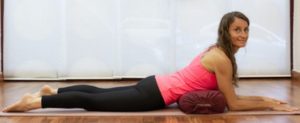
8. How long is the Yin Yoga Teacher Training Course?
Yin Yoga TTCs typically range from:
50-hour(short, specialized courses)
100-hour(foundational, short-term courses)
200-hour(full teacher training course)
The duration can vary based on whether the course is offered in-person or online, and whether it’s intensive or spread out over several weeks or months.
9. Will I receive a certification upon completing the course?
Yes, after successfully completing a Yin Yoga TTC, you will receive a certificate.
For Yoga Alliance-certified courses, the certification may count towards continuing education (YACEP)if you are already a certified yoga teacher (RYT).
Some schools offer accredited certification that allows you to teach Yin Yoga classes once you complete the course.
You may also be eligible to teach private sessions, workshops, or retreats.
10. Can I teach Yin Yoga after completing the TTC?
Yes, after completing a Yin Yoga TTC, you are qualified to teach Yin Yoga classes. You’ll have gained the necessary skills to:
Lead beginner to advanced Yin Yoga classes.
Offer workshops, retreats, and private sessions.
Integrate Yin Yoga into your existing teaching practice.
11. How is Yin Yoga beneficial for my students?
Yin Yoga helps release deep tension and increase flexibility by targeting connective tissues like fascia, tendons, and ligaments.
It promotes emotional healing and stress relief, making it a great practice for anxiety, burnout, and trauma recovery.
Yin Yoga also balances the nervous system, encouraging a deep state of relaxation and mindfulness.
12. Can I take the Yin Yoga TTC online?
Yes, many schools offer online Yin Yoga Teacher Training, which is great for those who cannot attend in person. Online courses may include:
Live classes via Zoom or similar platforms.
Pre-recorded lessons and reading materials.
Assignments and feedback from instructors.
